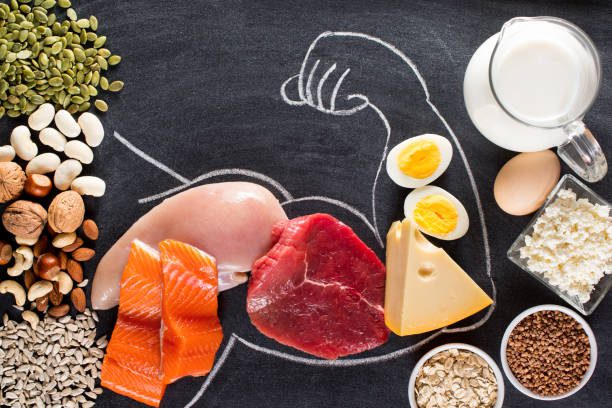The Benefits of a High-Protein Diet

In the pursuit of weight loss, many people focus on cutting calories and increasing exercise. While these strategies are essential, one dietary change that can significantly impact weight loss is increasing protein intake. A high-protein diet has been shown to boost metabolism, reduce appetite, and help preserve lean muscle mass, making it an effective approach for shedding unwanted pounds. Whether you’re strolling through the Georgetown square, exploring downtown Round Rock, or wandering Cedar Park in search of your next great meal, choosing protein-packed options can help fuel your journey towards a healthier you.
Protein and Satiety: The Key to Reduced Caloric Intake
One of the main reasons a high-protein diet is effective for weight loss is its ability to increase satiety, or the feeling of fullness. Protein has been shown to reduce levels of the hunger hormone ghrelin while increasing the production of appetite-suppressing hormones such as peptide YY and GLP-1. As a result, people who consume more protein tend to eat fewer calories throughout the day without consciously restricting their intake.
A study published in the American Journal of Clinical Nutrition found that increasing protein intake from 15% to 30% of total daily calories led to a spontaneous reduction in calorie consumption by approximately 441 calories per day. This reduction can lead to significant weight loss over time without the need for excessive calorie counting or restrictive dieting.
Boosting Metabolism and Fat Burning
In addition to reducing appetite, a high-protein diet can enhance metabolism. The thermic effect of food (TEF) refers to the number of calories burned during digestion, and protein has the highest TEF compared to fats and carbohydrates. About 20-30% of the calories from protein are burned during digestion, compared to only 5-10% for carbohydrates and 0-3% for fats. Individuals who consume high-protein diets experience an increase in energy expenditure, which can contribute to more efficient fat loss. Additionally, protein helps the body maintain lean muscle mass during a calorie deficit, ensuring that the weight lost comes primarily from fat rather than muscle.
Preserving Muscle Mass and Preventing Weight Regain
When people lose weight, they often lose both fat and muscle mass. However, maintaining lean muscle is crucial because muscle tissue burns more calories at rest than fat. By consuming adequate protein, individuals can help preserve their muscle mass while losing fat, which supports long-term weight maintenance.
A study published in The Journal of Nutrition found that individuals who followed a high-protein diet during weight loss maintained more lean muscle mass compared to those who consumed lower amounts of protein. This muscle preservation not only improves body composition but also helps prevent the metabolic slowdown often associated with weight loss.
Furthermore, individuals who consume high-protein diets are more likely to keep the weight off after losing it. This is because protein helps regulate hormones related to hunger and satiety, making it easier to maintain a lower body weight in the long term.
Scientific Support for High-Protein Diets
The effectiveness of high-protein diets for weight loss is well-documented in scientific literature. A systematic review published in the National Library of Medicine highlights that high-protein diets not only enhance weight loss but also improve body composition by reducing fat mass while preserving lean muscle. The review also emphasizes that a protein intake of approximately 1.2 to 2.0 grams per kilogram of body weight per day is beneficial for individuals looking to optimize fat loss and muscle retention.
Practical Tips for Increasing Protein Intake
If you’re looking to incorporate more protein into your diet, consider these practical tips:
- Include protein at every meal: Eggs, lean meats, fish, tofu, Greek yogurt, and legumes are excellent sources.
- Opt for high-protein snacks: Nuts, cottage cheese, protein shakes, and jerky can help you meet your daily protein needs.
- Balance macronutrients: While protein is essential, don’t neglect healthy fats and complex carbohydrates to support overall health.
- Stay consistent: Gradually increasing protein intake and making it a regular part of your diet will yield the best results.
Get Support from Inspire Fitness
If you live in Cedar Park, Round Rock, Leander, Georgetown, or a nearby community, and you’re looking for expert guidance in incorporating more protein into your diet while achieving your fitness goals, the personal trainers at Inspire Fitness are here to help. They will provide personalized meal recommendations, workout plans, and ongoing support to ensure you stay on track and make the most of your fitness journey. Contact us today!
